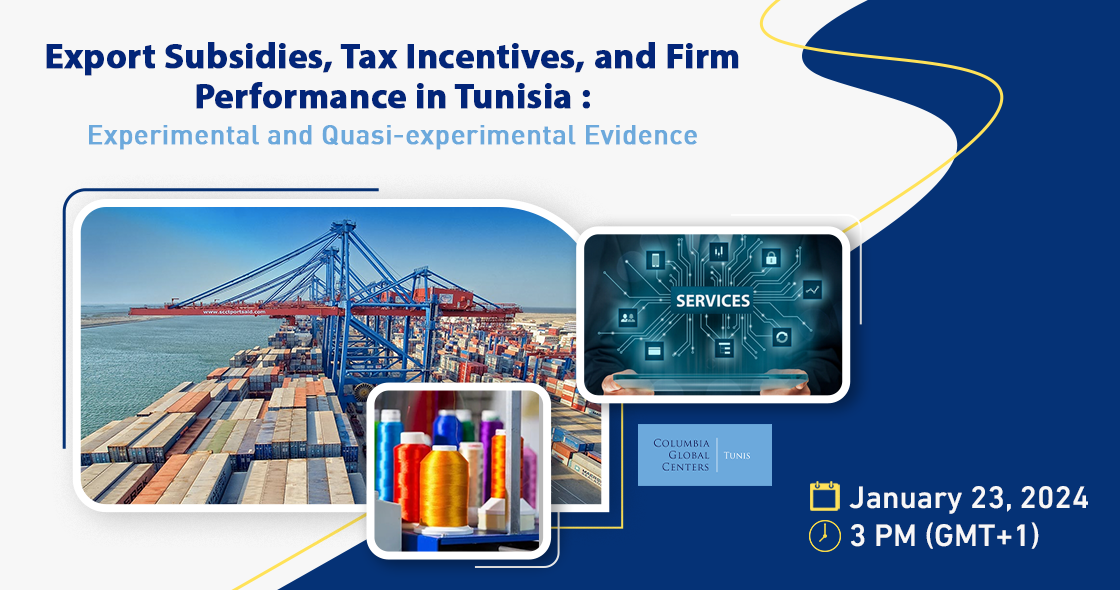Join us, on January 23rd, in-person, at 3 p.m. (CET), for the closing of a Columbia University President's Global Innovation Fund project, “Evaluating an Export Promotion Scheme in Tunisia”.
? Key Topics:
- Effectiveness of market-access subsidies in promoting diversified export strategies.
- Impact of subsidizing a firm’s export business plan or office abroad on market expansion.
- Influence of export rebates on increasing export volume, product variety, and market diversity.
- Exploration of firms' responses and adaptations to changes in corporate income tax policies and their impact on strategic responses and overall performance.
Register here.
Meet Our Speakers:
Pr. Eric Verhoogen, Professor of Economics and International and Public Affairs at Columbia University, will be delivering an insightful talk titled "Are Market-Access Subsidies Effective? Experimental Evidence from Tunisia." With his extensive expertise, Pr. Verhoogen will delve into the mounting evidence of the salutary effects of exporting. Focusing on the context of developing countries and their utilization of matching grants to promote exports, he will specifically address the limited rigorous evidence on the effectiveness of such programs. Through a meticulous examination of TASDIR+, a matching grant program in Tunisia, Pr. Verhoogen will showcase findings from a randomized controlled trial and firm-level administrative data. The evaluation will center on TASDIR+'s objective of diversifying export performance by subsidizing fixed market-access costs.
Dr. Massimiliano Calì, Senior Country Economist for the World Bank in Tunisia, will unravel the implications of Tunisia's 2014 corporate income tax (CIT) reforms. These reforms notably eliminated the long-standing CIT exemption for export-oriented firms (offshore firms) while concurrently reducing the general rate for other businesses. The talk will explore the effects on entry and exit dynamics at the sectoral level. Dr. Calì's analysis assesses the short- and medium-term impact of this policy change on existing firms' revenues, employment, and exports. Preliminary results suggest a significant reduction in firm entry without discernible impacts on overall employment, revenues, profits, and trade. The presentation is expected to offer a nuanced understanding of the consequences of Tunisia's CIT reforms, shedding light on their impact on firm behavior and economic outcomes.
